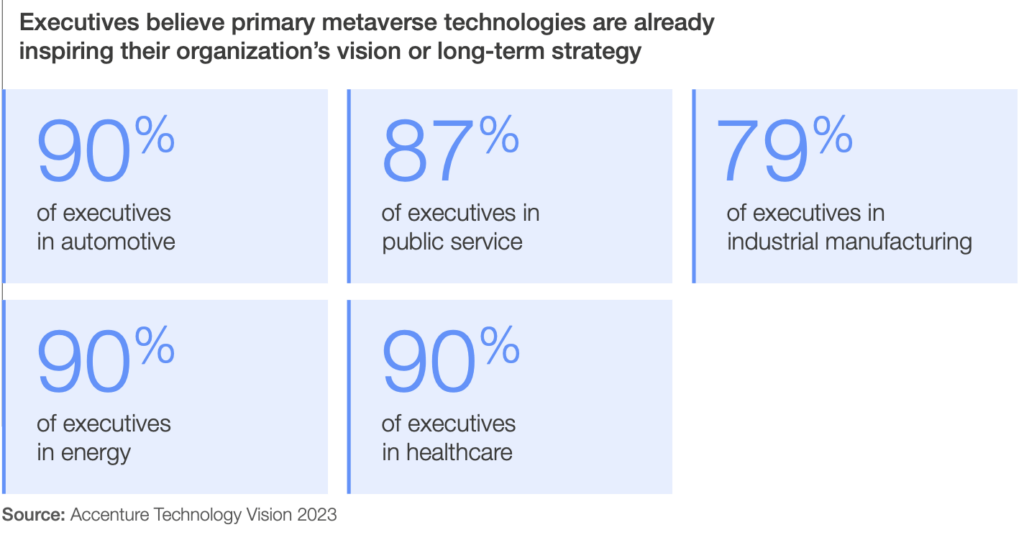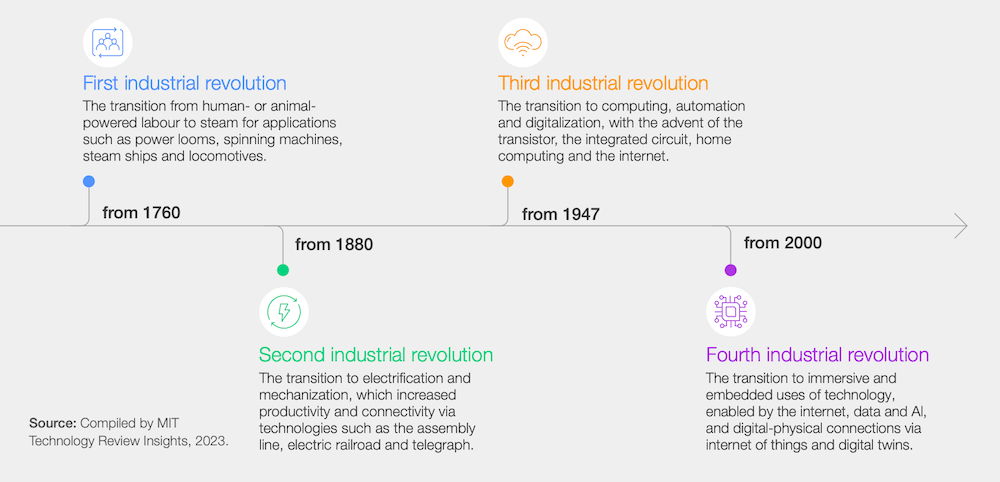The Industrial Metaverse: Insights from WEF Report

The World Economic Forum (WEF) has released a report that sheds light on the growing impact of metaverse technologies in the manufacturing sector. This emerging technology, which enables highly immersive virtual environments and is compatible with cryptocurrencies and NFTs, is rapidly gaining traction among manufacturing firms, marking a shift towards the next phase of the industrial revolution.
Industry leaders are taking notice, with 92 percent of executives actively exploring ways to incorporate metaverse technologies into their operations. The WEF report, titled ‘Navigating the Industrial Metaverse: A Blueprint for Future Innovations,’ predicts that the global market for industrial metaverse will reach $100 billion by 2030, bringing about major transformations in industrial value chains.

The industrial metaverse, as outlined by MIT and Siemens, creates digital twins of complex systems like machines, factories, cities, and transportation networks. This digital environment offers participants immersive, real-time, interactive, and continuous simulations that mirror the real world. Furthermore, such advancements will enable sectors ranging from automotive to healthcare to address complex real-world challenges through digital solutions.
At the core of the industrial metaverse are four key technologies – digital twins, spatial computing, artificial intelligence (AI), and blockchain, according to the report. These technologies work together to create a blended reality, eliminating physical limitations and allowing for greater agility, adaptability, and real-time interactions. AI and quantum computing will enhance digital twins, simulating real-world objects, to revolutionize processing capabilities and enable highly accurate and speedy simulations of complex scenarios.

Challenges and Opportunities Ahead
While the potential of the metaverse is immense, navigating its complexities poses significant challenges for industry leaders. The WEF report emphasizes the need for cross-industry collaboration to develop the necessary capabilities and ecosystems to leverage the benefits of this technology fully. It also stresses the importance of a responsible, ethical, and economically viable approach towards harnessing the power of the metaverse. The report outlines critical considerations for stakeholders embarking on this journey.
Economic Impact and Future Projections
The economic impact of the metaverse looks to be substantial, with a projected value of $900 billion by 2030. Virtual experiences are expected to contribute two-thirds of this figure, highlighting the significant role of the industrial metaverse in shaping industries and driving future innovations. Moreover, by the decade’s end, the industry metaverse sector alone is predicted to generate $100 billion in global revenues, surpassing both consumer and enterprise sectors combined.
In conclusion, the WEF report highlights the growing importance of metaverse technologies in the US manufacturing sector. With its potential to revolutionize product design, development, and operational efficiency, as well as its significant economic impact, the industrial metaverse clearly stands to shape the future of various industries. Collaborative efforts and responsible implementation will be crucial in harnessing the full potential of this emerging technology.





